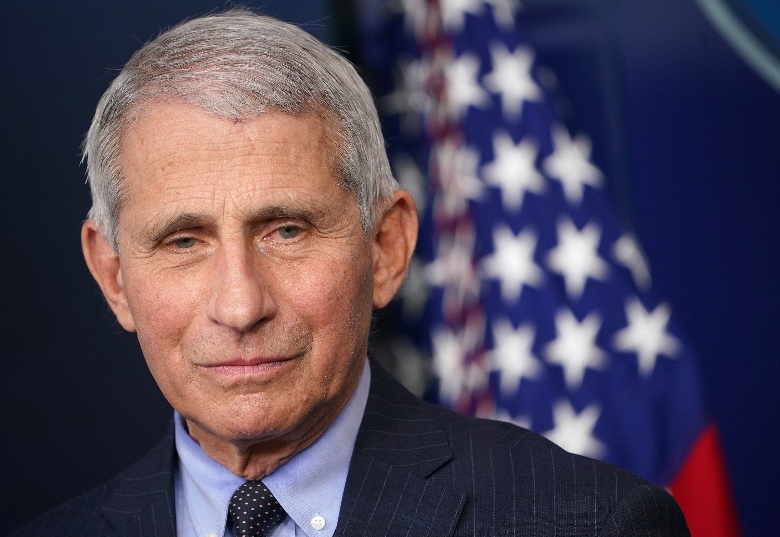The Select Subcommittee on the Coronavirus Pandemic has concluded its two-year investigation into the United States’ handling of the COVID-19 crisis, unveiling a 500-page final report on Monday titled “After Action Review of the COVID-19 Pandemic: The Lessons Learned and a Path Forward.”
The report, heralded as the most comprehensive examination of the pandemic response to date, outlines critical failures, particularly by the National Institutes of Health (NIH), and proposes reforms aimed at better preparing for future health crises.
The subcommittee’s work was extensive, involving over 100 investigative letters, 30 transcribed interviews and depositions, 25 hearings, and the review of more than one million pages of documents. According to the report, these efforts culminated in actionable recommendations designed to improve the nation’s pandemic preparedness and response capabilities.
Fight off the Flu, with Z-Flu™
A Doctor Zelenko Original. Vitamin Boost your immune system with Z-Flu™, an all-natural, doctor-formulated supplement created by Dr. Zelenko—the same trusted physician behind the original Z-Stack.
Visit: getzstack.com – Save 5% with Coupon code “SAVE”.
The report is intended to serve as a roadmap for Congress, the Executive Branch, and the private sector. Representative Brad Wenstrup (R-OH), chairman of the subcommittee, emphasized its importance: “The findings and recommendations in this report will help the United States, and the world, predict, prepare for, protect against, and hopefully prevent the next pandemic.”
Central to the report’s findings were significant failures at the NIH, particularly in its oversight of high-risk research. The subcommittee identified what it described as “deficient and unreliable” procedures for funding and monitoring potentially dangerous research projects. These lapses, the report stated, posed serious threats to public health and national security.
Eric Thompson Show
The report criticized the NIH for fostering a culture where evasion of federal record-keeping laws became normalized. Specific examples included actions by Dr. David Morens and NIH Freedom of Information Act (FOIA) specialist Marge Moore, who was referred to as the “FOIA Lady” in the findings. Both were implicated in efforts to circumvent transparency requirements.
In addition to addressing NIH’s shortcomings, the report advocated for stricter oversight of federally funded research, particularly studies involving pathogens that could pose global threats if mishandled. The subcommittee also called for reforms to increase the transparency and accountability of government health agencies.
The report didn’t solely focus on criticism; it also underscored the importance of collaboration between the public and private sectors to strengthen America’s ability to respond to health crises. “The United States must learn from its mistakes and work together to ensure that the failures seen during the COVID-19 pandemic are not repeated,” the report concluded.
Among its other key topics were the origins of the virus, public health policies, vaccine distribution, and the economic impact of prolonged lockdowns. The findings are expected to influence future legislative discussions and policy reforms as Congress and health officials work to bolster the nation’s pandemic readiness.
While the subcommittee’s investigation represents one of the most thorough reviews of the government’s pandemic response, its conclusions have already sparked debate in Washington and beyond. Critics have called for swift action to address the vulnerabilities exposed in the nation’s pandemic response systems, with particular attention to NIH’s role.
Supporters of the report argue that its recommendations provide a critical opportunity for meaningful reform, while detractors caution against using the findings to politicize public health.
Whether the recommendations lead to substantive changes remains uncertain, but the report has undeniably reignited discussions about the U.S.’s capacity to manage future pandemics.
The subcommittee’s investigation shines a spotlight on the need for accountability and reform in America’s health and research institutions. With a detailed roadmap for addressing these issues now in hand, the challenge lies in implementing the proposed changes and ensuring the nation is better equipped for the next health crisis.
As Congress and health officials digest the findings, the final report stands as both a critique of past failures and a call to action for the future. Whether this pivotal moment will lead to lasting change remains to be seen.



how about CONSEQUENCES for fauXi?
At least put him in PRISON awaiting trial (as happened to the Jan 6th patriots) for Crimes Against Humanity!
Specifically, please list some of the Fauci errors of judgment, or his mistakes which could have been avoided by a different person you can identify.
When is going to prison for all his corruption lies fraud bankrolling millions of dollars. He’s as corrupt as they come. He killed millions of people on his lies and fraud and the government wants to give him a medal.